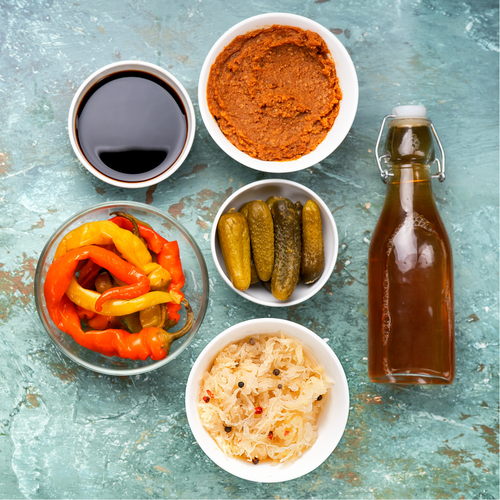Having fun without feeling guilty is important!
The secret to being able to indulge in a few excesses without worrying about the unpleasant effects that can go with it is to have healthy intestines (that cannot be improvised). But don’t panic, we have a little last minute tip to help you: take a digestive rest day !
What does a day of digestive rest consist of? As its name suggests, it involves pampering your digestive system with foods prepared without salt or fat.
Don't forget to drink at least 2 to 3 liters of water during the day.
A day of digestive rest causes a significant elimination of water, lightens the work of the heart and the circulatory system, gives the liver and digestive organs a day off!
So are you ready ?
Several alternatives:
Vegetable broth day :
- 1L of water, a bouquet garni, 1 onion studded with 2 cloves, 2 cloves of garlic
- Seasonal vegetables according to taste: carrots, leek, turnip, celery, tomato
- Cook over low heat for several hours
Rice day :
- 150g of rice (dry weight) and possibly 400g of steamed vegetables (optional) to be divided into 2 or 3 meals during the day
Fruit day :
- 1.5 kg of fresh, ripe fruit to spread over 3 or 4 meals
- All fruits can be suitable (apples, bananas, pears, grapes, clementines) and exotic fruits (papaya, pineapple, kiwi, mango, passion fruit) are particularly recommended
Mixed vegetable day :
- 1.5 kg of green and/or root vegetables to leave during the day in raw or lightly steamed form
- Green vegetables: artichoke, asparagus, chard, cabbage, spinach, fennel, green beans, zucchini, pepper, salads
- Roots: beet, carrot, black radish, rose, onion, parsnip, squash, celeriac, turnip
- To “pimp” it all up, you can add aromatic herbs, sprouted seeds and/or algae (spirulina, nori, wakame, chlorella). Spices and lemon can also work
- Be careful if you suffer from intestinal sensitivity, limit raw vegetables!















